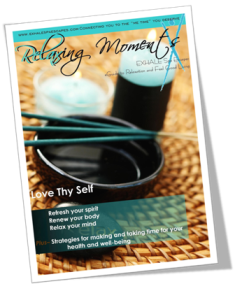What keeps many people awake at night? While for some it may have been too many sweet snacks, for most business people today, especially entrepreneurs, managers, and executives, it’s stress. There’s just too much to do, and not enough time to do it. The result of the hyped-up business climate we live in today is a population that’s dependent on medication and drugs to sleep and get through the day. These only serve to increase the devastating effects of stress on our lives.
The Centers for Disease Control and Prevention estimates that 60% to 70% of all disease and illness is stress-related. Add to that the fact that an estimated 75% to 90% of visits to physicians are stress-related, and there’s good reason the drug companies are having a field day. This really isn’t necessary. There is so much good information and knowledge about stress and stress reduction to get all stressed out over stress!
These are the top eight stress busters that I teach all my clients which help them dramatically reduce stress and improve the quality of their sleep.
- Mindful Awareness of Thoughts and Beliefs – Become aware of what you are thinking and feeling during the day. Are your thoughts negative, fearful or limiting? Do you worry about everything: money, health, and relationships? If you are thinking negative thoughts, you are attracting into your life negative people and unhelpful situations. You are doing the very thing you do not want to do. Try to “let go” of the thought and replace it with a positive belief or image.
- Visualization – Clinical evidence shows that physical changes clearly happen when people practice imagery regularly. Creating a mental image in your mind is a very powerful practice to use in the morning when you get up and at night before you go to sleep. Start by relaxing with music or in silence and create an image of a peaceful place. Then envision in your mind what you want to happen. “I am totally relaxed, I will wake-up with the solution to my problem, I will sleep soundly all night.” If you practice this technique frequently, you can instill these messages into your subconscious mind and activate the relaxation response anytime you want.
- Meditation – Mediating before bedtime for ten to twenty minutes can be very helpful for reducing stress and promoting sounder sleep.
Sit quietly in a comfortable chair, close your eyes and breathe deeply. Focus on your breath; relax your chest and body. When your mind wanders and you find yourself lost in other thoughts, let the emotion or thoughts go and return your focus to your breathing. This practice works quickly to reduce stress and rebalance your body. Continue for at least ten minutes or until you feel drowsy.
- Exercise, Exercise, Exercise
It’s a great way to release tension and fortify ourselves against the physical effects of stress. Engage in aerobic activity; take a walk, run or swim. Try a new, fun exercise such as Zumba, belly-dancing or boxing. Exercising in the evening, however can be counter-productive, particularly if the exercise is vigorous.
- Laugher and Fun
Laughter is one of the healthiest antidotes to stress. Take yourself lightly and your work seriously. When we laugh or even smile, blood flow to the brain is increased, endorphins are released, and levels of stress hormones drop. Start to notice how often you smile. People who experience joy, fun and laughter sleep well.
- Diaphragmatic Breathing – The following exercises make use of the breath and can enhance the ability to fall asleep due to their calming effect.
Put one hand on your abdomen and close your eyes. Take a deep breath in through your nose and expel it slowly and completely through your mouth. You will feel your belly flatten. Exhale fully, drawing in your abdomen. At the end of each third exhalation, hold your breath for as long as you can. Then repeat the process two or three times, or until you feel sleepy.
- Take Action – Rather than worry, re-live the situation over and over or spend sleepless nights thinking about the consequences, take some action to move the issue forward. Talk to a friend, get a therapist, journal… just do something. Procrastination weakens productivity, compounds your anxiety and causes the stressful side-effects of guilt, anger and low self-esteem.
- Get Serious- Hire a coach who specializes in stress reduction and mind-body coaching. Develop a blueprint for lifestyle change, set goals, have accountability and make the health lifestyle changes you have always wanted.


